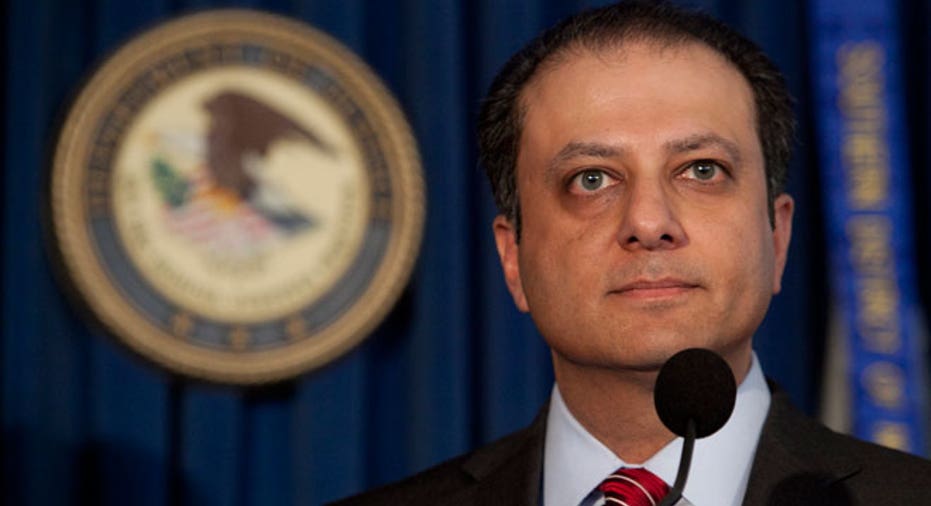Appeals Court Ruling Strikes at Insider Trading Cases

An appeals court ruling handed down Wednesday in two high-profile insider trading cases could have a chilling effect on federal prosecutors’ long-running campaign to root out the illegal practice on Wall Street.
The 2nd U.S. Circuit Court of Appeals in New York overturned the convictions of two hedge fund traders -- Todd Newman, a former portfolio manager at Diamondback Capital Management, and Anthony Chiasson, a co-founder of Level Global Investors -- saying the government did not prove that either trader knew that the person who provided the original illegal tip had done so for personal gain, as the law requires.
The ruling stated: “The government is required to prove beyond a reasonable doubt that Newman and Chiasson knew that the insiders received a personal benefit in exchange for disclosing confidential information.”
Essentially, the appeals court ruling states that Newman and Chiasson would only have known that the information they received was illegal if they had specific knowledge that the original tipsters had been paid for the information. After all, if the tipsters hadn’t been paid, it’s unlikely they would be passing along valuable information. The government failed to make that connection, according to the appeal ruling.
Legal experts say Wednesday’s ruling will cast a wide shadow over the government’s decade-long effort to crack down on insider trading, in particular the efforts of Preet Bharara, the U.S. Attorney for the Southern District of New York. It could mean more insider trading cases will be overturned -- namely that of SAC Capital portfolio manager Michael Steinberg -- and make it more difficult for prosecutors to secure convictions in the future.
Bharara’s office, whose jurisdiction includes Wall Street, has made insider trading a high-profile and central focus of its operations. The office has successfully prosecuted more than 80 insider trading cases in recent years and Tuesday’s successful appeals represent the first convictions to be overturned.
“There is no question the overturning of these verdicts will have a chilling effect on insider trading prosecutions. The standard has been raised for prosecutors in securing convictions for insider trading violations,” said Andrew Stoltmann, a Chicago-based securities lawyer who often represents investors in fraud cases.
“It will likely lead to less cases being filed and fewer convictions and that is unfortunate given what many perceive to be rampant insider trading. It is also a little bit of a black eye for Preet Bharara and it takes a little bit of the glow off of his wonderful insider trading conviction record,” Stoltmann added.
Newman and Chiasson had both been convicted in 2012 and sentenced to four-and-a-half years and six-and-a-half years, respectively, for their roles in an insider trading scheme that involved the tech stocks Dell and Nvidia. Prosecutors said at the time that the scheme generated $72 million in illegal profits.
Prosecutors had alleged that Newman and Chiasson were essentially at the far end of a chain of information that was passed along to them illegally and which started with illegal tips from insiders at the companies.
But the appeals court judges ruled otherwise, specifically noting that the judge at their original trials did not require the government to prove that Newman and Chiasson knew that the original tipsters had participated for their own financial gain.
U.S. Circuit Judge Barrington Parker said in Tuesday’s ruling: "Although the government might like the law to be different, nothing in the law requires a symmetry of information in the nation's securities markets."



















